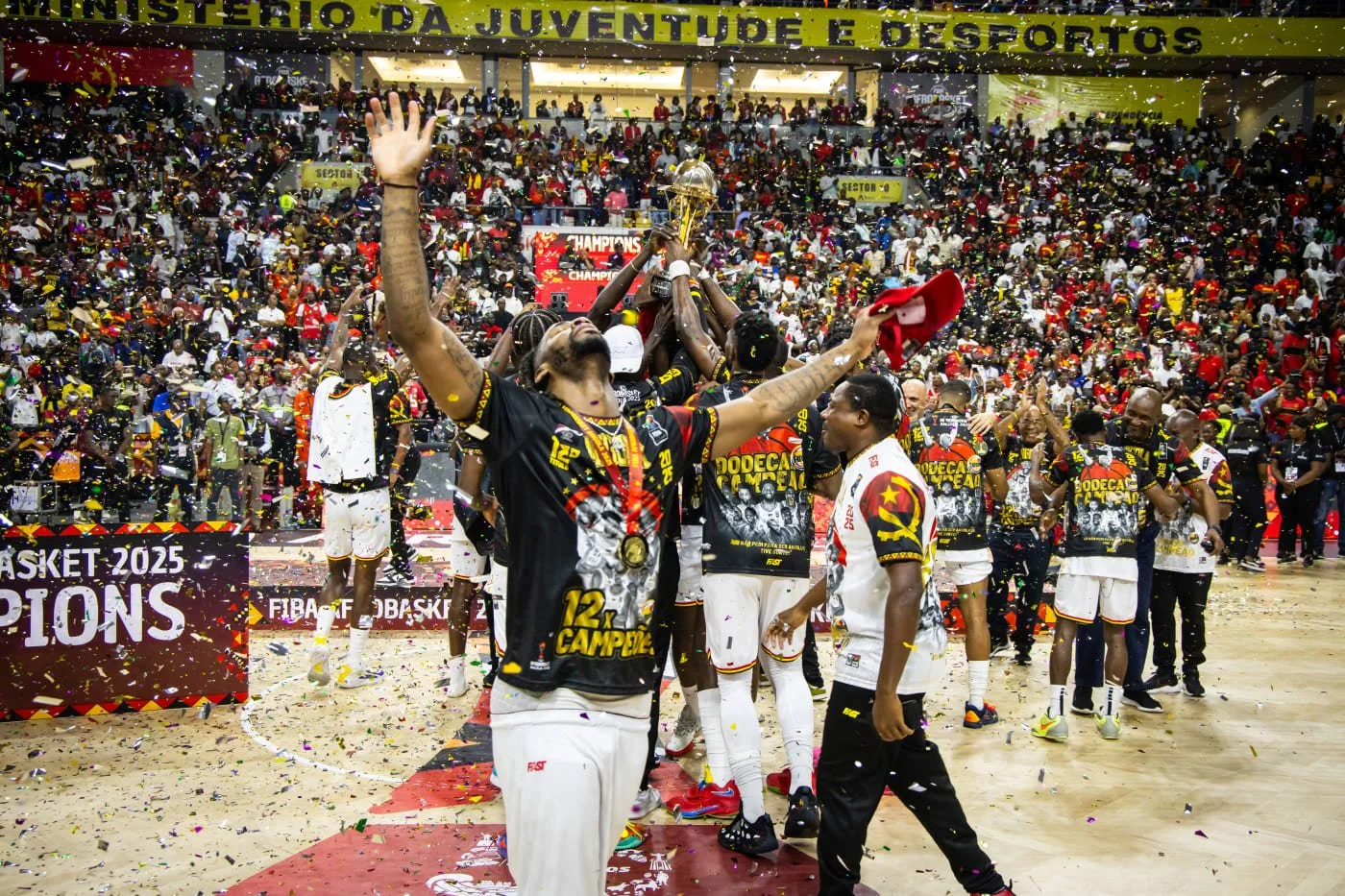How Angola built itself into Africa’s basketball powerhouse
By Sindiswa Mabunda
(PHOTO CREDIT: FIBA)
At the 2025 U.S.–Africa Business Summit in Luanda this past June, Angola unveiled its 5-pillar National Sport Development Plan: a bold vision to transform the country’s sports landscape. The strategy focuses on schools, communities, competition, infrastructure, and sports medicine. Already, the government is investing in two new football stadiums and the nation’s first para-athletics centre, signaling a long-term commitment to nurturing athletes and growing sports domestically.
This push comes as Angola’s economy is on the rebound. The country’s GDP grew about 4.4% in 2024 and is expected to continue modest growth through 2025, even as inflation remains high. With a per capita income of around $2,365, sports revenue relies heavily on sponsorships and institutional support rather than ticket sales alone. Yet the market for sports equipment and apparel is thriving, valued at nearly $472 million in 2025 and growing steadily, highlighting the country’s potential as a hub for sports investment and development.
Basketball & National Dominance
Angola, a longstanding basketball powerhouse in Africa, reaffirmed its dominance by capturing a record 12th FIBA AfroBasket title, defeating Mali 70–43 in Luanda. Following this triumph, President João Lourenço announced plans to construct 12 new multi-sport gymnasiums, one in each province, to support basketball, handball, martial arts, swimming, and gymnastics. “This is more than financial investment; it’s an investment in people,” he emphasized, underscoring the country’s long-term vision.
Talent Retention & Multi-Sport Club Power
Multi-sport clubs remain central to Angola’s sports success. Atlético Petróleos de Luanda (Petro) and Primeiro de Agosto nurture athletes across football, basketball, handball, and volleyball, feeding both national teams and professional leagues.
Atlético Petróleos de Luanda (Petro): Founded in 1980 from a merger of Grupo Sonangol, Clube Atlético de Luanda, and Benfica de Luanda. Founding partner: Sonangol; sponsors include FAST (kit/merch), The Atlantic, INAC, and Sonangol Carbono Azul. The club market value is €750,000 according to transfermarkt (the most valuable club’s record is set at €30 million by Egypt’s Al-Ahly)
Primeiro de Agosto: Founded in 1977 as the first post-independence club. Main sponsor: Angolan Armed Forces; other sponsorship includes Banco de Formento Angola. Football club market value: The club market value is €375,000 according to transfermarkt.
These clubs provide structure, cultivate excellence, and ensure talent retention, establishing pipelines for national teams and professional leagues.
Revenue Streams & Strategic Investment
Financial sustainability in Angolan sports relies on sponsorships, media rights, and merchandise, with international investment highlighting potential for growth. Qatar’s JTA International Investments, for example, underscores Angola’s attractiveness as a sports market. Sold-out AfroBasket home games, with ~12,000 fans in attendance in the Kilimba Arena, demonstrate strong local support and untapped revenue potential in ticket sales, merchandising, and event-driven income.
Beyond Basketball
While football remains the most popular sport, other disciplines are gaining momentum. Angola’s women’s handball team, “The Pearls,” has dominated continentally, including winning the African Championship 16 times and are currently the reigning champions while also achieving top eight Olympic finishes in 2007 and 2011 despite no medals yet. Clubs such as C.D. Primeiro de Agosto’s women’s handball team have secured multiple league and continental titles. In MMA, athletes like Shido Boris Esperança exemplify Angola’s rising global competitiveness, having won the PFL Africa Welterweight Quarterfinals in Johannesburg and preparing for the Semifinals in Kigali, Rwanda, this October.
With sustained investment in clubs, athletes, and infrastructure, Angola is positioning itself for long-term success across multiple sports, not just temporary victories, but a lasting legacy that integrates economic opportunity, talent development, and international recognition.


